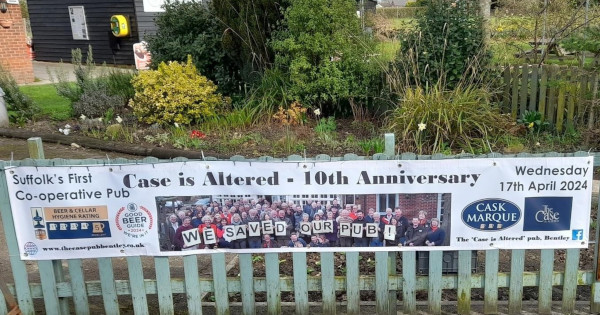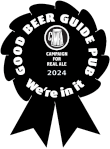The Pub’s Name
A local history buff has put together some fascinating information on the history of the name “The Case Is Altered” as it has been used for pubs around the country.
CASE IS ALTERED – A phrase first used by Edmund Plowden (1518-85), a lawyer. It referred to the effect of new evidence on the case he was dealing with in court.
The phrase seems to have become almost proverbial. It was taken up by Ben Jonson for his comedy The Case is Altered, written before 1599. As a pub name the reason for its use is a matter of local legend in each instance. Often it is said that the landlord’s situation altered for some reason, perhaps in his dispute with the licensing authorities. A sign at Banbury shows a courtroom scene. There is a local story about weavers winning a court victory, resulting in the Weavers Arms changing to the Case is Altered overnight.
Amongst the various more ingenious, but almost certainly totally false, explanations of the name one may cite a) a corruption of Casey’s Altar for the pub at Woodbridge in Suffolk; b) a corruption of Casa Alta for the several pubs of the name in the Harrow district. This is supposed to be because soldiers returning from the Peninsular War at the beginning of the nineteenth century had often occupied a ‘house on the hill’ during the battle, c) a corruption of Casa de Saltar, explained as ‘house of dancers’ where the British soldiers betook themselves. The last phrase is totally meaningless in Spanish (though saltarina is a dancer) and demonstrates only that in trying to explain a pub name, most people prefer to stay in the bar and invent something rather than pursue the matter properly.
At the Bentley Case is Altered two specific local meanings for the phrase “The Case Is Altered” have evolved:
1. Legend has it that the pub was once held by a genial landlady who was not too fussy about payment for beer, but when she got married, the case was altered.
2. The original pub stood further down the lane but to attract passing trade, a nearby house was taken over and altered to become the present day pub. During extensive alterations, evidence of bricked up doors and windows was uncovered that could account for this story.
There are rumours that our Case was built in 1736 – making it contemporary with John Constable, the famous local landscape painter!
Next Page: The Case’s Landlords

 01473 805575
01473 805575

